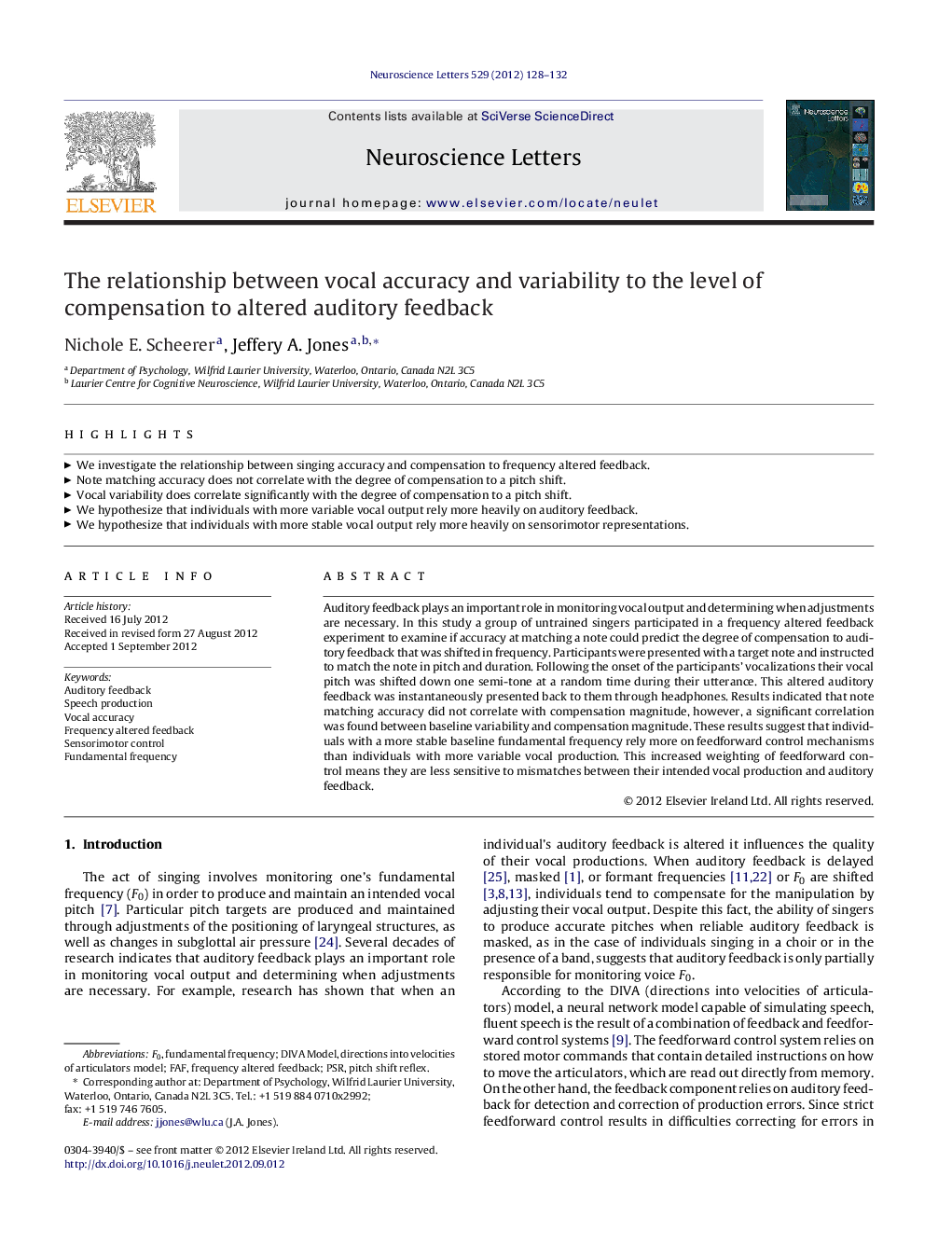| کد مقاله | کد نشریه | سال انتشار | مقاله انگلیسی | نسخه تمام متن |
|---|---|---|---|---|
| 4344281 | 1296643 | 2012 | 5 صفحه PDF | دانلود رایگان |

Auditory feedback plays an important role in monitoring vocal output and determining when adjustments are necessary. In this study a group of untrained singers participated in a frequency altered feedback experiment to examine if accuracy at matching a note could predict the degree of compensation to auditory feedback that was shifted in frequency. Participants were presented with a target note and instructed to match the note in pitch and duration. Following the onset of the participants’ vocalizations their vocal pitch was shifted down one semi-tone at a random time during their utterance. This altered auditory feedback was instantaneously presented back to them through headphones. Results indicated that note matching accuracy did not correlate with compensation magnitude, however, a significant correlation was found between baseline variability and compensation magnitude. These results suggest that individuals with a more stable baseline fundamental frequency rely more on feedforward control mechanisms than individuals with more variable vocal production. This increased weighting of feedforward control means they are less sensitive to mismatches between their intended vocal production and auditory feedback.
► We investigate the relationship between singing accuracy and compensation to frequency altered feedback.
► Note matching accuracy does not correlate with the degree of compensation to a pitch shift.
► Vocal variability does correlate significantly with the degree of compensation to a pitch shift.
► We hypothesize that individuals with more variable vocal output rely more heavily on auditory feedback.
► We hypothesize that individuals with more stable vocal output rely more heavily on sensorimotor representations.
Journal: Neuroscience Letters - Volume 529, Issue 2, 7 November 2012, Pages 128–132